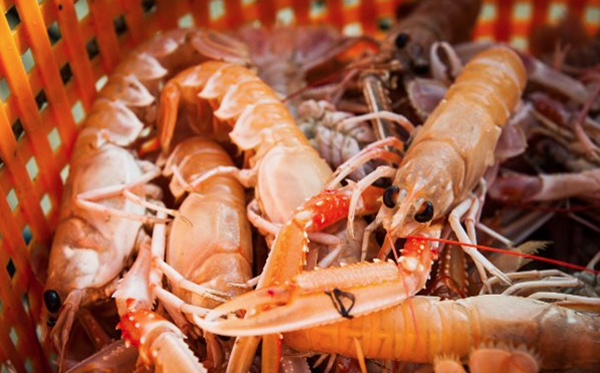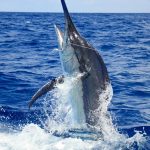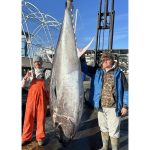Article courtesy of theecologist.com – please click here for original article.

Above: The ‘sustainable’ fishery targets a species known as neothrops or Norwegian lobster. Photo: Chris Grodotzki / The Black Fish.
Trawlers in an MSC-certified ‘sustainable’ lobster fishery producing have been caught in the act of using illegally modified nets to target valuable cod. The MSC has been notified but considers the evidence insufficient to act, so the lobsters still carry the MSC label.
Last week a lobster fishery in the Kattegat, the area of sea between northern Denmark and Sweden, is the proud recipient of a ‘sustainable fishing’ certificate through the Marine Stewardship Council(MSC).
But only four months ago Citizen Inspectors of The Black Fish (TBF) – an Amsterdam-based environmental group dedicated to preventing illegal overfishing in European seas – observed fishermen illegally targetting protected cod stocks in the exact same fishery – and has the photographic and video evidence to prove it.
But the MSC-accredited certifier has been unable to take the evidence into account because it was submitted too late in the certification process, and the MSC says it was in any case “insufficent to prove that illegal fishing has taken place” – prompting Wietse van der Werf, TBF’s International Director, to comment:
“Sustainability labels mean very little if certifiers are not digging deeper to find out what is really happening in fisheries. Surprise inspections and undercover investigators would be a good start.”
The evidence collected by TBF’s Citizen Inspectors will not be made public, pending its use in possible legal action, adds van der Werf: “We will continue to build on our findings as with more evidence we stand a stronger case.”
Good lobster, bad cod
The ‘sustainable’ fishery targets Norwegian lobster (also known as nephrops) with trawlers. But the Kattegat also contains important spawning areas for cod, which has been heavily overfished in the area over recent decades.
So the area contains two fisheries: a sustainable lobster fishery, and a very unsustainable cod fishery. Complicating the picture, Kattegat trawlers often catch the lobster and cod together in the same net, continuing the negative impacts on the troubled fish.
To protect the cod, while allowing the lobster fishery to continue, the Swedish authorities imposed new rules requiring fishers to fit specially designed grids in their trawl nets that create openings that adult cod caught up in the net can escape through, while retaining the lobsters.
But as one as of TBF’s Citizens Inspectors explains: “During the inspections we found multiple steel grids which weren’t properly attached to the trawl nets, allowing for an opening to be created underneath the grid, so cod could be caught.
“One net even used chains as weights to open up the net further, making the fitted grid totally useless. On another occasion we observed fishers re-attaching their nets upon return to the port, presumably for the net to meet the requirements during a possible inspection by fisheries officials.”
But the lobster will continue to carry the MSC label
In spite of the evidence of illegal ‘black’ cod fishing in the Kategat, products from the nephrops fishery will now bear the Marine Stewardship Council (MSC) label for ‘sustainable fisheries’.
TBF notified the MSC about its findings but by the time it was able to complete it’s investigation, learned that the 18 month-long formal assessment period for the fisheries had already passed, so it was too late for their evidence to be taken into account. However any new evidence can be taken into account in the 2016 audit.
Annual surveillance audits are carried out by the certification body but according to van der Werf, “we fear that these will yield little result in uncovering illegal activities, in part because they are publicly announced before they take place.”
By contrast, TBF’s Citizen Inspector Network carried out over 100 inspections in Swedish fishing ports last August, identifying numerous trawl nets illegally modified to prevent the cod’s escape.
Jo Winser, MSC spokesperson, said: “Part of our assessment process is that all MSC certified fisheries must comply with national and international law. The Black Fish were encouraged to submit their evidence but they failed to do so within the required time frame.
“Also the evidence that they have sent in is insufficent to prove that illegal fishing has taken place as the nets they examined were on dry land.
“We are still encouraging The Black Fish to submit their evidence to the certifier, Food Certification international Ltd, and that will be taken into account as part of the annual surveillance audit they will carry out.
“If there is any evidence there of illegal activity, then the certifier will take appropriate action.”





